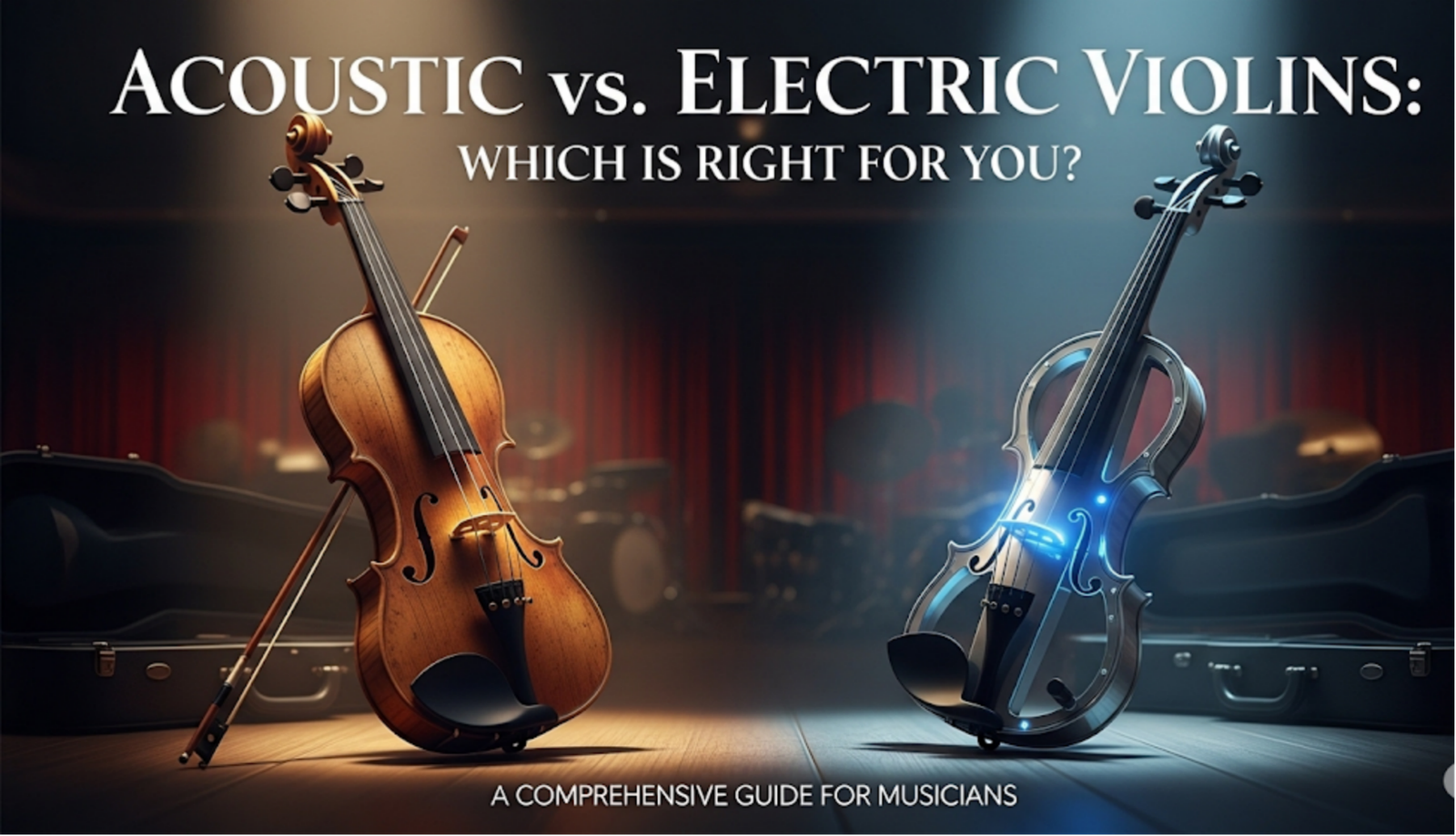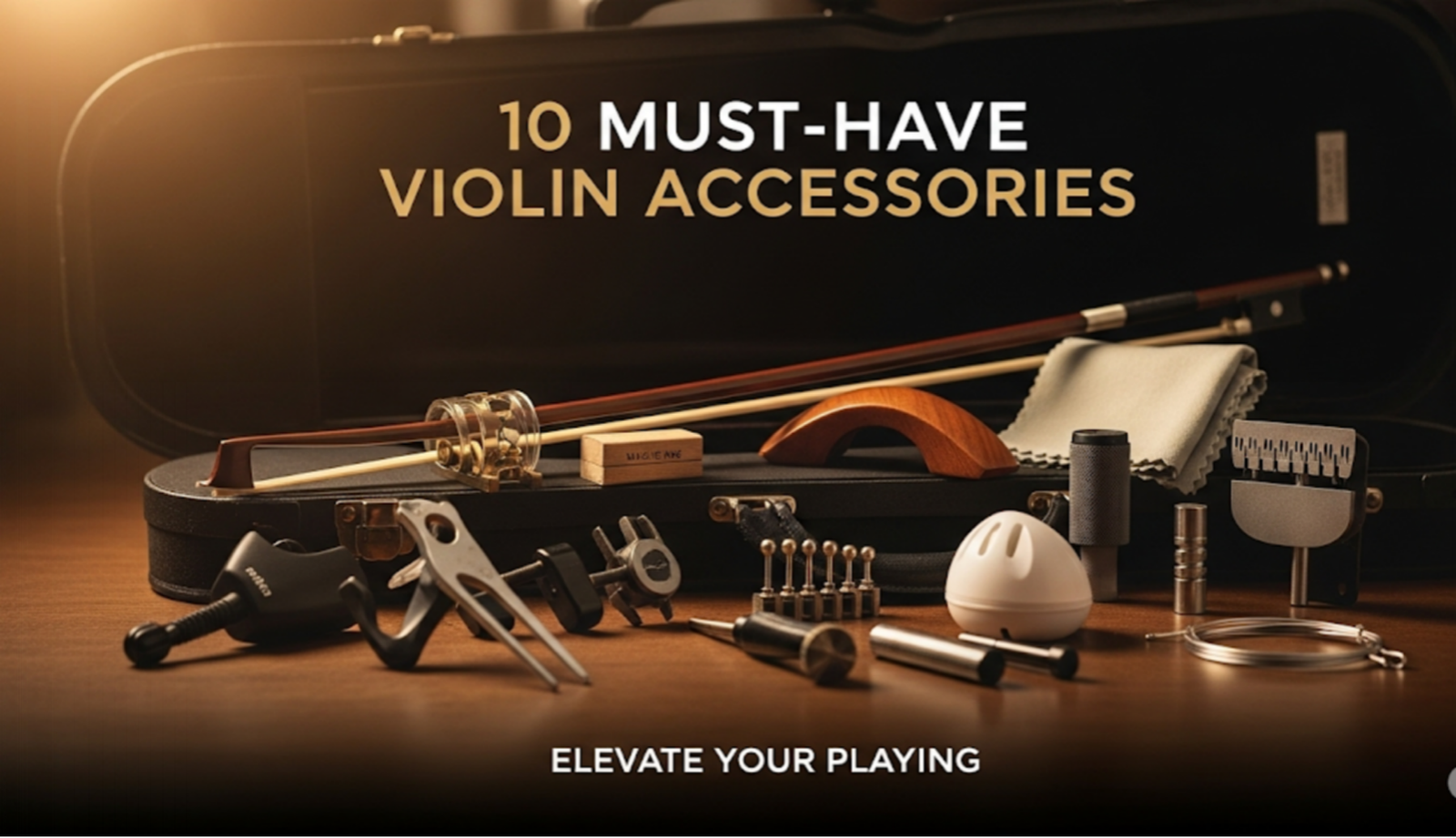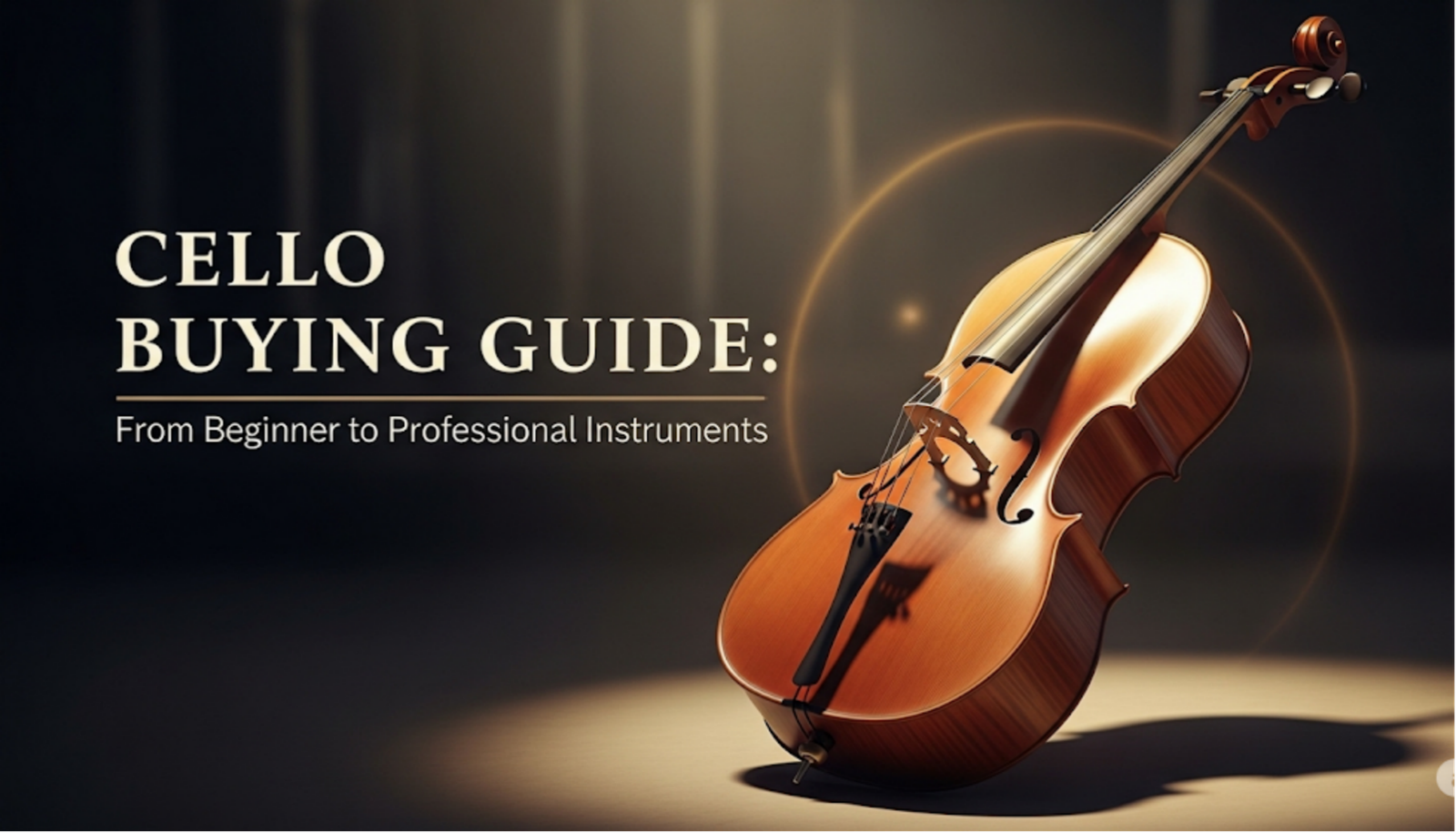What Is the Best Violin for a Beginner? Expert Recommendations for Your Musical Journey
Choosing your very first violin can be an exciting yet challenging endeavor. For many aspiring musicians, the journey begins with the critical question: “What is the best violin for a beginner?” With so many options available, selecting the right instrument is key to establishing a strong foundation in technique, sound, and overall musical enjoyment. In this comprehensive guide, we’ll explore the factors to consider when buying your first violin, examine various types of beginner violins, and offer expert recommendations to help you make an informed decision. Whether you’re buying for yourself or for a young student, this guide will help you navigate the world of beginner violins.
Why the Right Violin Matters for Beginners
Starting your musical journey on the right foot is crucial, and the instrument you choose plays a significant role. A well-made violin designed for beginners provides several benefits:
- Enhanced Playability: An instrument that responds well to your bowing and finger movements will help develop proper technique.
- Sound Quality: Even a beginner instrument should produce a clear, pleasant tone to keep you motivated and make practice sessions enjoyable.
- Ease of Maintenance: Beginner violins are built to be durable and require minimal upkeep, allowing you to focus on learning rather than repairs.
- Cost-Effectiveness: Investing in the right beginner violin means you won’t have to upgrade too soon, saving you money while you progress.
Ultimately, the best violin for a beginner strikes a balance between quality, affordability, and ease of play.
Key Factors to Consider
When shopping for your first violin, several factors come into play. Here’s what to keep in mind:
1. Quality of Materials and Construction
- Tonewoods: Many beginner violins are constructed from laminated woods rather than solid wood. Laminated violins tend to be more affordable and are less susceptible to changes in temperature and humidity, though they may not produce as rich a sound as their solid wood counterparts.
- Craftsmanship: Look for an instrument that is well-assembled with attention to detail. Even mass-produced violins should be inspected for smooth edges, proper fittings, and overall build quality.
- Durability: Beginners need an instrument that can withstand frequent practice sessions. Ensure that the violin is robust enough to handle regular use.
2. Sound and Playability
- Tone Quality: While professional violins are known for their rich, complex sound, beginner instruments should at least produce a clear and balanced tone. A violin with a poor sound quality can hinder your progress and discourage practice.
- Responsiveness: The instrument should be sensitive to your bowing and finger pressure. A responsive violin will help you learn proper technique faster.
- Setup: A well-set-up violin will have properly adjusted pegs and bridges, making it easier to tune and play. If possible, have a professional check the setup before purchasing.
3. Price and Budget
- Entry-Level Options: Beginner violins typically range from around $100 to $200 for the most basic models. While these can be very affordable, they might not offer the best sound quality or durability.
- Mid-Range Instruments: A slightly higher investment, usually between $200 and $500, often yields a violin with better materials, improved sound, and a more refined setup. This range is popular among serious beginners.
- Premium Beginner Models: For those committed to a long-term journey with the violin, spending $500 or more on a beginner instrument can provide an excellent balance of quality and longevity.
4. Rental vs. Purchase
- Renting: Renting is a viable option for those who are uncertain about their long-term commitment. With monthly rental fees typically ranging from $20 to $50, it’s an affordable way to start. Rental agreements often include maintenance, which can be a big plus for beginners.
- Buying: If you are sure about your passion for the violin, purchasing an instrument might be a better investment in the long run. Owning your violin means you can make personal adjustments and will eventually have the opportunity to build equity in a quality instrument.
5. Accessories and Packages
Often, beginner violin packages include a bow, case, rosin, and sometimes even additional accessories such as shoulder rests or cleaning cloths. These packages are great for newcomers who might not know exactly what they need to start playing, and they often provide excellent value for the price.
Types of Beginner Violins
There are several types of violins suitable for beginners, each with its own set of advantages. Here, we break down the most common options.
A. Student Violins
Student violins are designed with beginners in mind. They are built to be forgiving and user-friendly, making them ideal for someone just starting out.
- Pros:
- Affordable pricing
- Durable construction
- Easy to play with a forgiving response
- Cons:
- May lack the rich tonal quality of higher-end instruments
- Typically made from laminated woods, which may not improve with age
B. Intermediate Beginner Violins
For those who have progressed beyond the very basics, intermediate beginner violins offer a noticeable improvement in sound and playability.
- Pros:
- Better tone and response
- Improved materials and craftsmanship
- Often come with a professional setup
- Cons:
- Slightly higher price point
- Still not at the level of professional instruments
C. Rental Violins
Renting is an excellent option if you’re not ready to commit to a purchase. Many music stores offer rental programs specifically designed for beginners.
- Pros:
- Lower initial cost
- Flexible terms that allow for upgrades as skills improve
- Maintenance and repairs often included
- Cons:
- You don’t own the instrument, so there’s no equity built over time
- Long-term rental fees may add up if you decide to continue playing for many years
Expert Recommendations for Beginner Violins
While there are numerous models on the market, here are a few expert-recommended options that have proven popular among beginners:
1. Stentor Student I
Widely regarded as one of the best entry-level violins, the Stentor Student I offers:
- Quality Construction: Made from durable laminated woods, ensuring longevity and a decent sound quality for beginners.
- Ease of Play: A setup designed to facilitate easy tuning and playability.
- Value for Money: A cost-effective option that doesn’t compromise on essential features.
2. Cremona SV-130
The Cremona SV-130 is another well-regarded model for beginners:
- Enhanced Sound: Known for producing a warm and resonant tone.
- Solid Build: Crafted with attention to detail, making it a reliable instrument for daily practice.
- Complete Package: Often comes with a bow and case, making it a great starter kit.
3. Yamaha AV5
Yamaha is known for its high-quality musical instruments, and the AV5 is no exception:
- Modern Design: Incorporates newer manufacturing techniques while maintaining traditional sound quality.
- User-Friendly: Designed with beginners in mind, offering a smooth playing experience.
- Durability: Built to withstand frequent practice and the rigors of learning.
Note: While these models are highly recommended, the “best” violin ultimately depends on individual needs and preferences. It is always a good idea to try several instruments before making a final decision.
How to Evaluate a Beginner Violin
When you’re in the market for a beginner violin, here are some practical steps to ensure you’re choosing the right instrument:
1. Play-Test Multiple Instruments
Visit a local music store and play-test a variety of violins. Pay attention to how each instrument responds to your bow, the quality of the sound, and the comfort of the instrument in your hands. Even a few minutes of play-testing can reveal a lot about an instrument’s suitability for you.
2. Get Professional Advice
Consult with a violin teacher or a professional musician who can offer insights into the instrument’s quality and playability. Their expertise can help you avoid common pitfalls and choose an instrument that will serve you well as you progress.
3. Inspect the Instrument
Carefully examine the violin for any obvious defects. Look for:
- Smooth Fittings: Ensure that all fittings, such as the pegs and fine tuners, are secure and properly aligned.
- Quality Finish: A good finish not only enhances the instrument’s appearance but also protects it from damage.
- Overall Construction: Check for any cracks or irregularities in the wood that could affect the sound quality.
4. Consider Future Growth
A violin is an investment in your musical future. Even if you’re just starting out, consider an instrument that offers room for growth. An instrument with a slightly higher quality may cost more initially but can serve you well as your skills improve, potentially saving you from needing an upgrade too soon.
Additional Tips for Beginners
Maintenance and Care
A well-cared-for violin will always perform better. Here are a few maintenance tips:
- Regular Cleaning: Wipe down your violin after each practice session to remove rosin dust and fingerprints.
- Proper Storage: Keep your instrument in its case when not in use, and avoid exposing it to extreme temperatures or humidity.
- Periodic Professional Setup: Even a beginner violin can benefit from periodic adjustments by a professional luthier to ensure optimal playability.
Investing in Quality Accessories
Don’t overlook the importance of good accessories. A quality bow, a sturdy case, and a comfortable shoulder rest can all make a significant difference in your playing experience. Many beginner packages include these items, which can provide excellent value for money.
Patience and Persistence
Learning the violin is a journey that requires time, patience, and consistent practice. The right instrument is just the beginning. As you develop your skills, you’ll gain a deeper appreciation for the nuances of sound and technique, and your relationship with your instrument will only grow stronger.
Final Thoughts
The question, “What is the best violin for a beginner?” does not have a one-size-fits-all answer. Instead, the ideal instrument depends on your personal needs, budget, and long-term goals. Whether you opt for a popular model like the Stentor Student I, the Cremona SV-130, or the Yamaha AV5, the most important factor is that the violin feels comfortable in your hands and inspires you to practice every day.
When making your decision, consider factors such as material quality, playability, setup, and price. Remember that a beginner violin is not just an instrument—it’s the gateway to a lifelong musical journey. With the right guidance and a little hands-on research, you can find an instrument that not only meets your needs today but also supports your growth as a musician for years to come.
At Ariose Violin, we believe that every musician deserves an instrument that inspires creativity and passion. Our selection of beginner violins is designed to offer exceptional value, combining durability, excellent sound quality, and ease of play. Whether you’re just starting out or looking to upgrade from a rental, we’re here to help you find the perfect violin for your musical journey.
Embark on your musical adventure with confidence by choosing an instrument that resonates with your style and aspirations. Happy playing, and may your violin experience be filled with beautiful music and endless inspiration!



